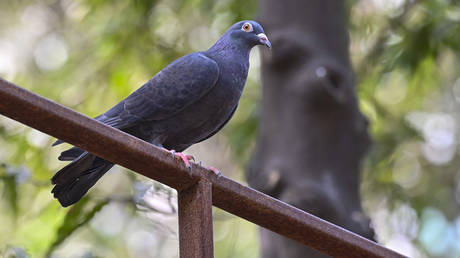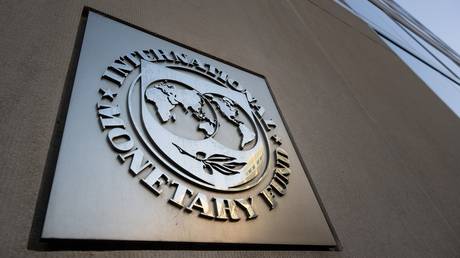
The bird was detained last May after being discovered with suspicious words affixed to its wing
A pigeon suspected of conducting espionage operations on behalf of the People’s Republic of China has been released by Indian officials after eight months of detention following an intervention by PETA, the animal rights group has said.
The bird was detained last May close to a port in Mumbai after it was discovered with two rings on its wing inscribed with words that appeared to be Chinese, the Press Trust of India reported, prompting concerns about its possible involvement in espionage.
Eventually, though, it was determined that the pigeon had no nefarious intentions towards the Indian state and was in fact an open-water racing bird from Taiwan that had escaped and made its way to the subcontinent.
The pigeon – who had apparently been deemed a flight risk – was held at an animal hospital before its transfer last week to the Bombay Society for the Prevention of Cruelty to Animals, whose staff set it free on Tuesday.
“After learning that a pigeon was held at the Bai Sakarbai Dinshaw Petit Hospital for Animals (BSDPHA) in Parel as case property for an astonishing eight months, PETA India sprang into action to secure the bird’s freedom from captivity,” the animal rights organization said in a statement on its website.
Following PETA’s intervention, Mumbai police approved the release of the wrongfully accused avian.
The pigeon’s eight-month ordeal is not the first instance of a bird being suspected of ‘fowl’ play in India. In 2020, police in the Indian-administered part of Kashmir freed a bird that was also suspected of spying after it flew across the heavily militarized border separating India and Pakistan.
In 2016, another pigeon was detained in India after it was reportedly found carrying a note containing a threat to Prime Minister Narendra Modi.
Historically, pigeons have been used in spying operations – including by the UK during both World Wars – to deliver messages. Famously, a bird named Gustav ferried the first news of the D-Day landings back to the UK after details were attached to the winged messenger on Sword Beach in Normandy on June 6, 1944.
Last year, scientists in the US state of New Mexico began working on a project in which they intended to repurpose dead, taxidermied birds into drones in order to better understand the habits of flocks of birds on flights.
The research, which was presented last year at the American Institute of Aeronautics and Astronautics, could also be harnessed to enable espionage directed at military targets, reports said.




